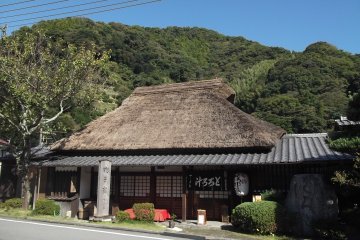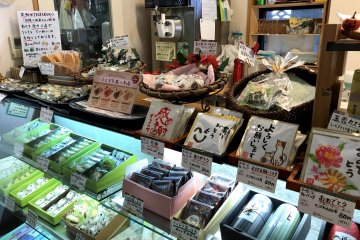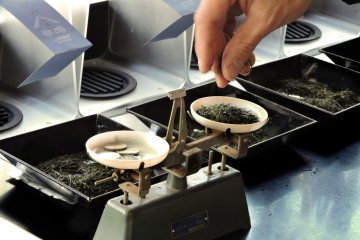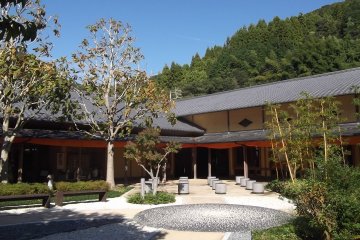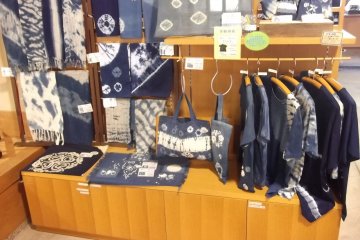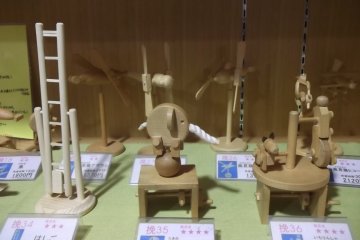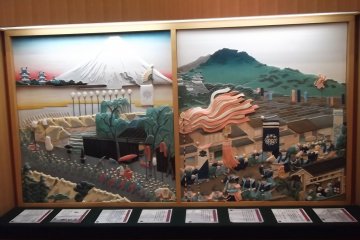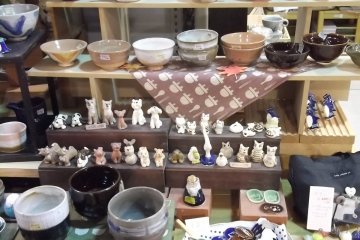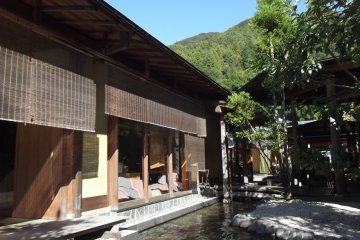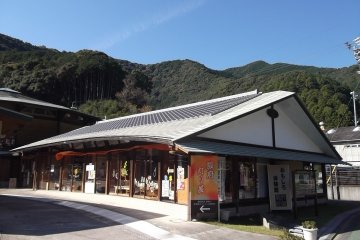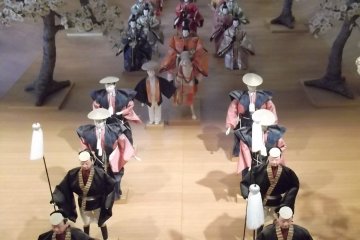A short drive or bus ride from central Shizuoka city, the Mariko district is a pleasant, leafy place to spend a day away from the downtown bustle. There's some attractive scenery, charming temples such as Togeppo Saioku-ji and Kansho-in, and the Sumpu Takumi Shuku, a craft center where you can learn about traditional local handicrafts, and try your hand yourself if you feel so inclined.
It's a very stylish place, with an understated design that fits in well with the surroundings. The low buildings are spread out around a central yard with a gentle water feature, a nice place to relax with a snack after a workshop or the journey from downtown. (There's also a shelter for when the weather isn't so clement.)
The main attraction is the galleries and atelier spaces, showcasing a whole range of crafts: indigo dye, items made from turned wood or woven bamboo, ceramics and glassware. If I understood the staff correctly (all the information is only in Japanese), it's possible to take workshops on a walk-in basis, even just for one or two people. I'd say it's better to make a reservation to guarantee a place, though, because on the afternoon I visited, a large party of schoolchildren arrived shortly after I did.
Reading the price list, it looks like there are a whole lot of different things you can make: among those I can read are spoons, card cases, hairgrips and plates; handkerchiefs, scarves, T-shirts, bandanas and aprons (that'll be the indigo dying, I guess); and glasses cases, pen- and pencil-holders, and candlesticks. The durations are from around 20 minutes up to two hours, the cost mostly around JPY1500-3000, up to JPY8000 for more involved goods.
If you don't have time for a full workshop, then just up the road you can try something less time-consuming. At the Omoshiro Taiken-kan ('Experience Hall') you're able to have a go at sandblasting a design onto a glass or cup, or a mirror or piece of jewelry: this takes about an hour, the cost roughly JPY1000-2000, depending on the piece you buy. Alternatively, you can try laser etching onto wood, the cost again depending on the detail of what you do, up to around JPY3000. This seems to me like a fun way to both enjoy the experience and come away with a unique, personal souvenir.
Adjacent to the Taiken-kan is a museum with a variety of interesting displays related to local history and crafts. I imagine they change periodically, but when I was there I saw some fun historical dioramas, beautiful lanterns made from stained glass, and giant sandals of the kind sometimes used to decorate temples. Then when you step outside, you're at the start of the Mariko-no-Sato nature walk, an unarduous walk over a hill through unspoilt forest.
If you spend long enough at the craft center to get hungry, there's an airy cafe, where I indulged in a tasty curry rice. There's also a well-stocked gift shop: as well as goods from the workshops (presumably) they sell among other things a range of tableware, cookies, glassware, traditional wooden geta clogs, and lacquerware.




